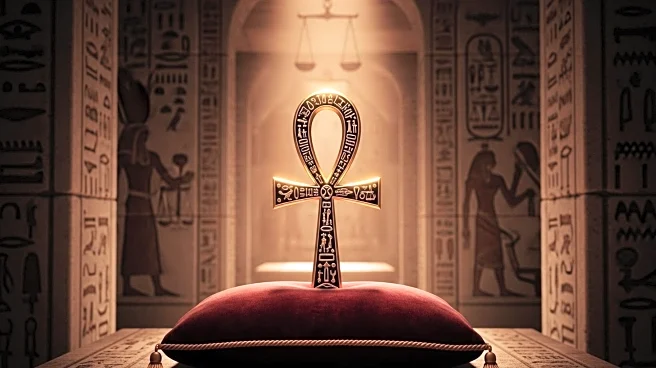What's Happening?
Alaa Abd el-Fattah, a British-Egyptian human rights activist, is set to be released from prison after serving six years for liking a Facebook post. The decision to grant him freedom was made by Egypt's President Abdel Fatah al-Sisi following intensive lobbying efforts by the UK government and pressure from Egypt's national human rights council. UK Prime Minister Keir Starmer, along with other officials, played a significant role in advocating for Abd el-Fattah's release. His family, including his mother Laila Soueif, who went on hunger strikes, and his sisters Mona and Sanaa, have been actively campaigning for his freedom. The release was reported by al-Qahera News, linked to Egypt's intelligence service, and Abd el-Fattah's family is currently awaiting his release outside the prison in Cairo.
Why It's Important?
The release of Alaa Abd el-Fattah is a significant development in the realm of human rights and international diplomacy. It highlights the influence of diplomatic pressure and advocacy in securing the freedom of individuals imprisoned under controversial circumstances. This event may strengthen UK-Egypt relations, particularly in discussions surrounding human rights and political freedoms. Abd el-Fattah's release is also a victory for human rights organizations and activists who have long campaigned against his imprisonment, emphasizing the importance of international solidarity in addressing human rights abuses.
What's Next?
Following his release, Alaa Abd el-Fattah is expected to undergo an exit interview and may seek to travel to the UK. His family and supporters are closely monitoring the situation, and there is anticipation regarding his future plans and potential involvement in human rights advocacy. The UK government may continue to push for his complete freedom and safe travel, potentially setting a precedent for future diplomatic efforts to secure the release of UK nationals held overseas.
Beyond the Headlines
Alaa Abd el-Fattah's case underscores the broader issues of freedom of expression and the use of social media in authoritarian regimes. His imprisonment for a Facebook post raises questions about the limits of free speech and the role of digital platforms in political activism. The case also highlights the challenges faced by activists in the Middle East and North Africa, where governments often suppress dissent and control information flow.












